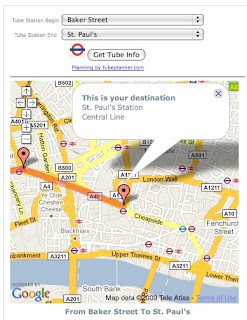I was involved with the leading-edge web site,
zembly, beginning in fall 2007, writing example widgets, applications, and data services for the companion book ‘
Assemble the Social Web with zembly.’ zembly, the brain child of Todd Fast, began at Sun Microsystems as a web-based social development environment, enabling users to write widgets and other software. The site automatically keeps track of versions and publishes code, deploying the services and widgets for you. You can share the widgets, embedding them in web pages or posting them on sites such as Facebook. The site also lets you build and deploy Facebook applications. The book was published early this year and we presented a sold-out Hands-On Lab at JavaOne in June. Sadly, the site
announced its closure this week. Besides thoroughly enjoying the time I spent coding applications on zembly, I really appreciated the interaction with the zembly folks, including Todd, Chris Webster, and especially Jirka Kopsa.
I have two favorite examples I built for the book. One is a Facebook application, Capital Punishment, which helps you learn the world’s capitals using a 20-question multiple choice quiz.

You see each answer mapped using Google maps. It includes all the usual social features of Facebook applications—challenging friends and letting you compare your scores with your friends.
Probably my favorite is a widget that shows you how to navigate the London Tube. It maps the station sequence (with Google maps), drawing a color-coded line (matching the tube station colors) to each station.

The data comes from
tubeplanner.com, via
Dapper. With Google maps, you can follow the route. Markers locate the stations and information windows tell you the station name, line, and where you need to change lines.

It's tough saying goodbye to zembly. It will be missed by many!!
 You see each answer mapped using Google maps. It includes all the usual social features of Facebook applications—challenging friends and letting you compare your scores with your friends.
You see each answer mapped using Google maps. It includes all the usual social features of Facebook applications—challenging friends and letting you compare your scores with your friends. The data comes from tubeplanner.com, via Dapper. With Google maps, you can follow the route. Markers locate the stations and information windows tell you the station name, line, and where you need to change lines.
The data comes from tubeplanner.com, via Dapper. With Google maps, you can follow the route. Markers locate the stations and information windows tell you the station name, line, and where you need to change lines. It's tough saying goodbye to zembly. It will be missed by many!!
It's tough saying goodbye to zembly. It will be missed by many!!
